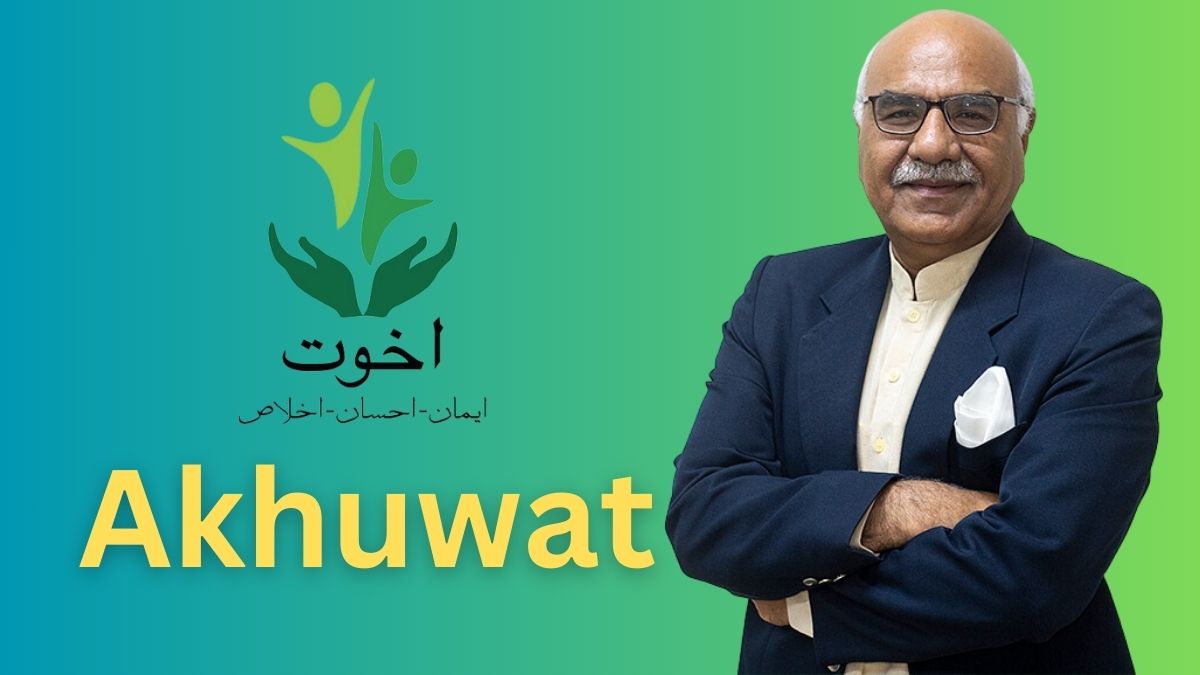In a world often marked by inequality, poverty, and social injustice, the Akhuwat Foundation has emerged as a powerful force of change, compassion, and hope. Established in Pakistan in 2001, Akhuwat has become a model organization in poverty alleviation through its unique interest-free microfinance model, rooted in Islamic principles and social solidarity. Today, the foundation is recognized not only across Pakistan but globally, as a symbol of inclusive development and human dignity.
The Vision Behind Akhuwat Foundation
The word “Akhuwat” means “brotherhood” in Arabic, and this core value shapes every aspect of the foundation’s work. Founded by Dr. Amjad Saqib, a social entrepreneur and former civil servant, Akhuwat began with a simple but revolutionary idea: to provide interest-free loans (Qarz-e-Hasna) to the underprivileged, enabling them to start or expand small businesses and become self-reliant.
The vision was clear — to fight poverty not by charity alone, but by restoring dignity and empowering people through trust, empathy, and financial inclusion. Akhuwat believes that poverty is not just a lack of income, but a lack of opportunity, and its goal is to bridge that gap with compassion.
Interest-Free Microfinance: A Revolutionary Model
Unlike traditional microfinance institutions that charge high-interest rates, the Akhuwat Foundation offers completely interest-free loans to the poor. These loans, which typically range from 10,000 to 100,000 Pakistani rupees, are used to support small businesses, pay for education, or cover medical expenses. The repayment terms are flexible, and there are no penalties or hidden charges.
This model is based on Islamic finance principles and the idea of communal support. Akhuwat uses mosques, churches, and community centers as loan disbursement points, creating a sense of trust and reducing administrative costs. By involving local communities and maintaining transparency, Akhuwat has achieved remarkable repayment rates exceeding 99%, a testament to the strength of its model.
Expanding Impact Beyond Microfinance
Though interest-free lending remains at its core, the Akhuwat Foundation has expanded its services to address other critical areas of need, creating a holistic ecosystem for development:
- Akhuwat Education Services
Akhuwat operates a network of free schools and Akhuwat College, along with Pakistan’s first tuition-free university — Akhuwat University. These institutions provide quality education to children and youth from underprivileged backgrounds, empowering the next generation with knowledge and opportunity. - Akhuwat Health Services
Recognizing the link between poverty and poor health, Akhuwat runs community health clinics and mobile health units to deliver affordable healthcare services to low-income communities. - Akhuwat Clothes Bank
A unique initiative that collects gently used clothing from donors and distributes them with dignity to families in need, promoting sustainability and human decency. - Support for Transgender Community
Akhuwat is one of the few organizations in Pakistan that provides vocational training, psychological support, and small loans to transgender individuals, helping them integrate into society and live with self-respect. - Akhuwat Housing Project
Akhuwat also provides interest-free housing loans to help low-income families build their own homes, addressing the country’s growing housing crisis.
Impressive Reach and Global Recognition
Since its inception, Akhuwat Foundation has disbursed over PKR 170 billion (around $1 billion USD) in interest-free loans, benefiting more than 5 million families across Pakistan. It has set up more than 800 branches in both rural and urban areas, ensuring access to even the most marginalized communities.
This remarkable impact has earned Akhuwat national and international acclaim. In 2021, Dr. Amjad Saqib received the Ramon Magsaysay Award, often referred to as Asia’s Nobel Prize, for his extraordinary work in social service. The United Nations, World Bank, and various academic institutions around the world have studied and praised Akhuwat’s sustainable, community-led model.
A Model for the World
Akhuwat Foundation’s success challenges the notion that poverty reduction must be profit-driven. By combining faith, trust, and social responsibility, it has proven that development can be both effective and ethical. Its model is now being considered for replication in other countries with similar socioeconomic conditions.
The foundation’s work reflects the idea that economic justice and social compassion can go hand in hand. By giving people not just money, but respect and responsibility, Akhuwat has transformed lives, restored hope, and built stronger communities.
Conclusion: A Movement of Hope
The Akhuwat Foundation is more than a non-profit — it is a movement of humanity. In a world often dominated by selfish interests, Akhuwat stands as a reminder that solutions grounded in empathy, faith, and collective responsibility can bring real change.


